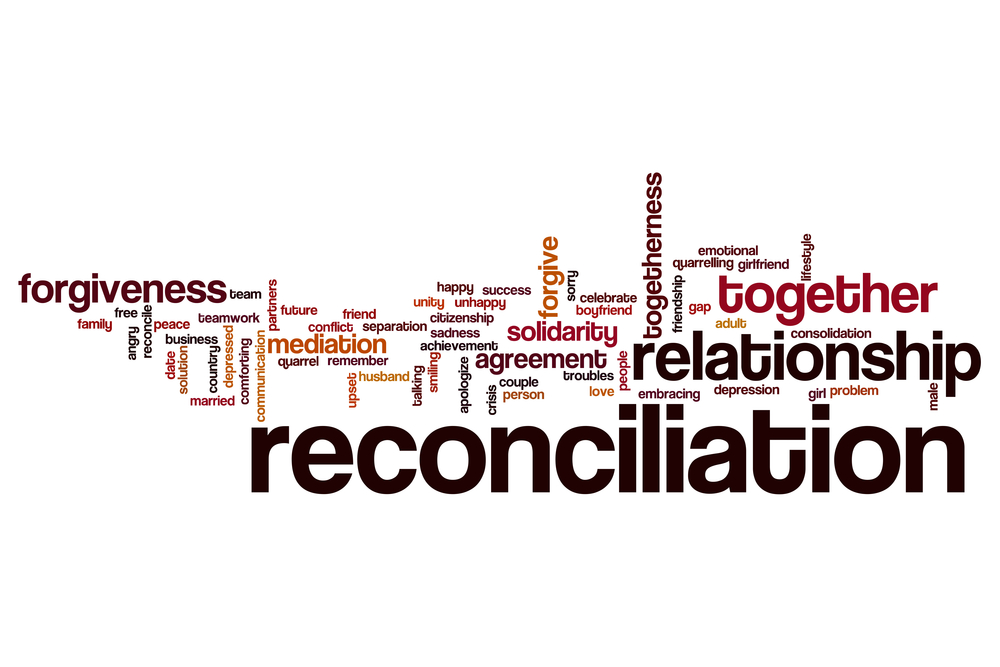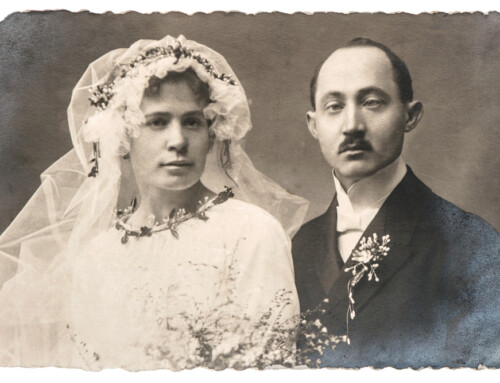1. Pick Your Spot. Try to read the other person’s body language.
2. Tell Them How You Feel. Say that you’ve missed them and express honest regret about how the relationship ended.
3. Maintain Eye Contact. Don’t look evasive or distracted.
4. Acknowledge Your Mistakes and Apologize. Be specific and sincere.
5. Be Realistic. Don’t expect instant success — reconciliation takes time and hard work.
6. Reconciliation is Not Forgiveness. It takes one person to forgive, but it takes two to reconcile.
7. What Went Wrong?
•Think about what’s wrong with your marriage and how you may be contributing to the problems.
•Make a list of the issues in your relationship. Put yourself in your spouse’s shoes and imagine how your actions affect him or her.
•Let your spouse know you are committed to working on the relationship.
•Separate your anger from the issues and approach your spouse calmly.
•Let your spouse know you are not interested in blaming them for the problems in your marriage — you just want to reconcile.
8. Talk With Your Spouse. Let your spouse know you intend to work on your relationship and make things better. Acknowledge the problems in your marriage. Admit your own feelings of hurt and anger, and encourage your spouse to share theirs as well. Explain why you are angry or hurt, and listen sympathetically to their feelings.
9. Avoid Defensiveness. Be open and honest with your spouse about feelings. Don’t become defensive. You may encounter resistance from your spouse, but do your best to stay honest, forgiving, loving, and vulnerable during your discussions.
10. Apologize for Past Mistakes. Apologize for any harm you may have done. Apologizing validates your spouse’s hurt and anger and allows them to move toward reconciliation. Tell your spouse you are sorry for what you did, and you won’t do it again. If your spouse is able to accept your apology and forgive you, that’s a big step toward reconciliation.
11. Don’t Expect Instant Success: You might need to have several conversations. Focus on small positive steps without raising your voices or getting angry at each other.
12. Focus on the Future. Once you’ve discussed what’s wrong with your relationship and shared your feelings, it’s time to focus on the future. A meaningful reconciliation takes time.
•If one of you is not ready to forgive, let the other person know by saying, “I am still working through this hurt, and it will take some time. Please be patient.”
•Agree to leave the past behind you. Share your thoughts about what a better relationship would look like.
•Make lists of practical actions you can both take to rebuild the marriage, such as communicating every day, having a regular dinner date, and any other simple steps toward a better relationship.
13. Rebuild Trust: Trust is essential in any marriage and once it’s gone, it takes a long time to rebuild. It will help if you can communicate openly and honestly about your feelings toward each other.
•Being consistent, patient, and kind goes a long way.
•Do what you promise. If you tell your spouse you plan to spend more time together, make certain that happens.
•Follow through on your commitments and if you hurt the other person, immediately apologize.
•If your spouse hurts you, let them know right away, so you don’t accumulate resentment.
14. Maintaining Boundaries: Boundaries are not to keep people and feelings away, rather to show respect for yourself. If something makes you uncomfortable, let others know that’s a line they shouldn’t cross. You don’t want to violate another person’s boundaries, so why should you allow them to violate yours? Establishing boundaries will make you feel safer and more comfortable with yourself, and others will respect you more as a result.
Jennifer Safian
divorce and family mediation
upper east side of manhattan (nyc)
new york, ny
(917) 881 5206
jpsafian@gmail.com
Latest posts by Jennifer Safian (see all)
- coping with divorce guilt - April 17, 2024
- does not reaching an agreement mean the mediation process failed? - March 27, 2024
- should I tell my children’s school that we are getting a divorce? - March 13, 2024






Leave A Comment